Kōichi Katsuragi
Рождение : 1890-03-12, Hakodate, Hokkaido, Japan
Смерть : 1964-09-06
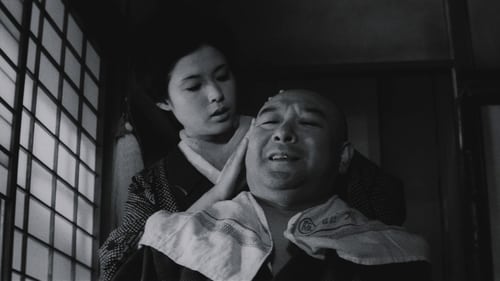
Takemine Matsuyama
После смерти знаменитого художника настоятелю храма достались не только его восхитительные росписи, но и столь же прекрасная наложница. За отношениями между настоятелем и куртизанкой наблюдает молодой послушник.

Suprabuddha
An Indian prince leaves his world of comfort and riches behind to wander and meditate for six years in search of spiritual enlightenment. Siddartha (Cojoin Hong) turns his back on the old religion when people are starving needlessly and holy rituals include human sacrifices. During his meditations, he is tempted by erotic dancing women, demons, and the evil machinations of his criminal cousin. Devastate to attain the spiritual perfection and become the Buddha. He travels to convert followers by his kindness and wisdom, gaining a multitude of believers when he stops an elephant from crushing a local priest. Buddha of course goes on to become one of the great religious leaders of the world.
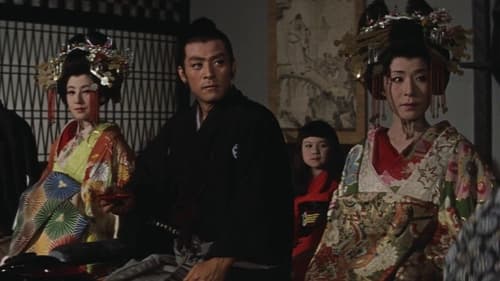
Fujisaku
Самурай Рюноскэ Цукуэ - великий мастер меча. Его отец был главой фехтовальной школы, и парень вырос с мечом в руках. Однако с ранних лет Рюноскэ во всём шёл своей собственной дорогой: и в искусстве меча, и в вопросах духа. Его невиданная «молчаливая стойка» непобедима, а его бунтарская душа не признаёт законов человеческой морали. Когда его руки сжимают меч, ничто на свете не имеет для него значения. Он доверяет только своему мечу, и идёт по жизни, равнодушно оставляя позади окровавленные тела и искалеченные судьбы. Его меч - продолжение потерянной души, сжигаемой огненной кармой. Души, познавшей пьянящий вкус крови.

Жизнеописание основателя школы Сутры Лотоса Нитирэна (1222 — 1282). В этой ленте подчеркивается его роль в истории Японии, как истинного патриота и защитника нации.

One of Japanese folklore's most popular characters is brought to life on the silver screen in this terrific version of legendary Demon slaying Peach Boy.
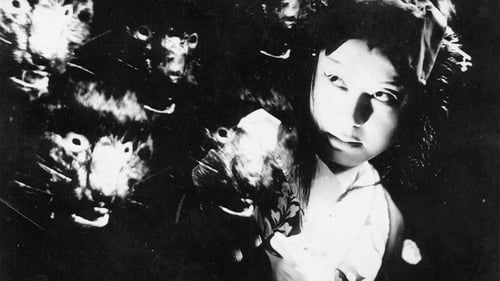
A kabuki actress is murdered. Her pet cat laps its mistress's blood and becomes a demon possessed by the vengeful murder victim.

A Japanese drama featuring the one-eyed, one-armed swordsman
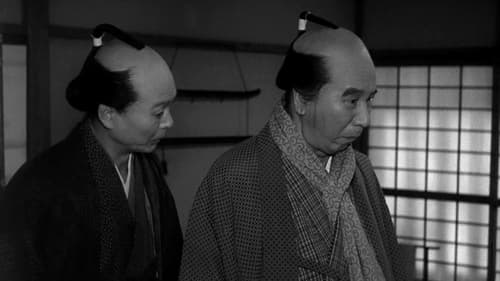
Priest
Исюн изготовляет свитки буддийских сутр для императорского двора. Его жена, молодая и красивая женщина, обуреваема страстью к одному из учеников мужа. Чувство взаимно, и супругу остается только смириться.

A woman loses her son through an evil conspiracy and commits suicide. Shortly afterwards a ghost cat begins haunting the conspirators. This is Takako Irie's first bakeneko (ghost cat) movie; it started a Daiei cycle which was very popular at the time in Japan.

Akashi Takenori
Gotō Matabei is the most able and fierce samurai of the Kuroda clan. However, he gradually dislikes the ruthless personality of Kuroda Nagamasa and leaves the clan. Seven years later, he joins Toyotomi Hideyori's army. Filmed in 1945 and released in 1952.

Gensaburo Funaki and Oyuki were childhood friends, but Gensaburo misunderstood that Oyuki was hesitant to get married because he had to feed his father and younger brother. I left the town.

Japanese film.

Kihei

A 1946 Japanese film directed by Keigo Kimura.

According to Donal Richie in The Japanese Film it was meant to do for sumo wrestling what Kurosawa had done for judo in Sanshiro sugata, and that Kurosawa wrote it for Daiei after "drinking up all [his] money" (from his autobiography).

Matsugoro is a poor rickshaw driver whose animated spirit and optimistic demeanor make him a favorite of the town. Matsu helps an injured boy, Toshio, and is hired by the boy's parents.

Знаменитый фехтовальщик Матаемон Араки должен встретиться со своим лучшим другом, поскольку они вынуждены принять противоположные стороны в кровной мести, вызванной убийством члена семьи.

A story about Ômura Masujirô

The Color Print of Edo is a 1939 black and white Japanese silent film with benshi accompaniment directed by Kazuo Mori. It is a cheerful period drama, sprinkled with comical scenes and tells the story of a loyal and handsome Edo period servant who fights to help his older brother marry the woman he loves. The star of this film Utaemono Ichikawa gained enormous popularity for his portrayal of a cheerful and chivalrous man.
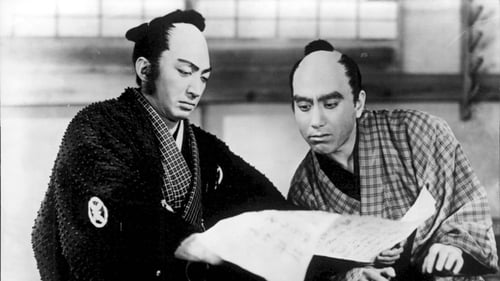
A samurai is ordered by his lord to go to Edo and investigate the truth behind the rumor of a rebellion against him.

Japan's first feature film directed by a female. The film was about the naïve, premature emotions between a young geisha-to-be and a youth destined for Buddhist priesthood; it concluded with their separation.

In old Edo, Kakunojo (Chiezo), a dandy about town, falls in love with Oichi (Isuzu Yamada), whose merchant family is much beyond Kakunojo's status. He nevertheless pursues her until her initial disgust breaks down into fondness, then romantic feelings, inducing her to abandon her fiance on their wedding day.

Okaichi Yanmen
Chiezo Kataoka plays a cowardly samurai, whose honor is on the line when it becomes necessary to avenge the murder of his father. The culminating duel takes place on a night of fireworks.

Sanzō
Токидзиро, участвовавший в налёте на дом босса враждебного клана, в схватке убивает Сандзо, защищавшего это поместье. После этого он из жалости будет заботиться о беременной вдове Сандзо, а затем и о её ребенке. Один из редких сохранившихся шедевров немого японского кино.

Этот комедийный фильм демонстрирует актерский талант Дендзиро Окоти и служит продолжением к фильму «Ядзи и Кита: Спасение Ясуда», который является частью сериала «Ядзи и Кита».

Naosuke Gonbei
An adaptation of The Ghost of Yotsuya

Yujiro Yasuda
Этот комедийный фильм демонстрирует комический талант Дэндзиро Окоти. Юмористический обмен мнениями с героем другого признанного актёра Горо Кавабэ, может быть бесценным, а выражения и движения двух глупых персонажей создают чистую, веселую комедию фарса. 15-минутный отрывок из фильма был выпущен на DVD компанией Digital Meme с аккомпанементом бенси Мидори Савато и Рюби Като.

For nearly 300 years, Japan had been hermetically sealed to the outside world. When, in that pivotal year of 1854, the American Admiral Perry took the direct approach that the Dutch had been unwilling to take, the ruling Shogun knew that the dynasty was over. As the shogun began to open up to the outside world, the Sonno Joi movement called for this to be reversed...

Directed by Minoru Murata.

Directed by Kiyomatsu Hosoyama.





















